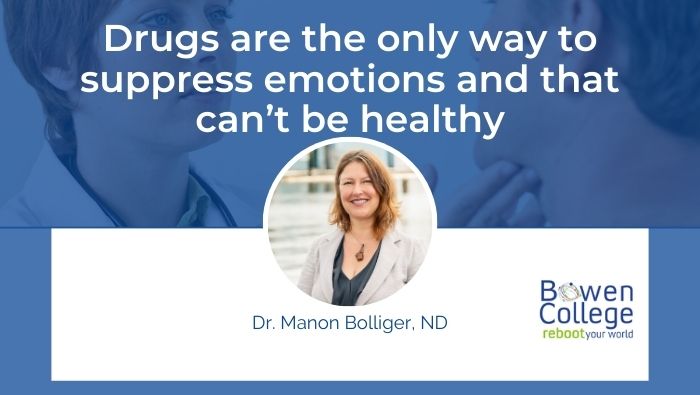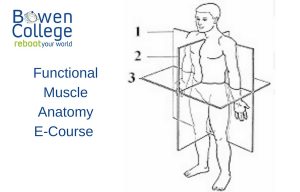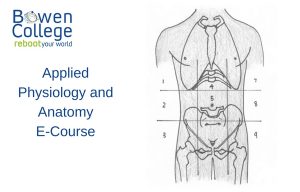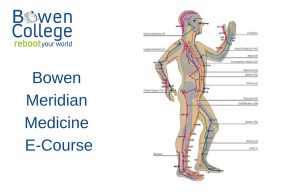In the last couple posts (https://www.bowencollege.com/insights-from-gabor-mate-on-emotions-and-health/) I discussed the implications of the faulty assumption that somehow people suppressed their emotions. We’ve seen why this doesn’t make sense and can’t be true. However, that doesn’t mean emotions cannot be suppressed.
The only way to interfere with the natural process is if the person is sufficiently drugged as not to feel their emotion. This certainly is a kind suppression. It is a conscious choice (maybe ill-informed) to suppress the emotions, whether expressed or internalized.
Observation of the major trends in psychiatric medicine reveal that “medical intervention” is ultimately based on keeping the patient’s feelings out of their reach by dulling the senses in one way or another. The approach is to introduce a drug action to suppress the emotion. This can only be done through an external drug effect; the body cannot do this on its own.
The body cannot consciously suppress its own emotions, but requires outside intervention to suppress what the body cannot do itself. The health benefit claims of such an approach make no sense. Driving emotions out of our reach denies us any possibility to address their cause or get to the source of their appearance.
I do not think that the human body was designed with the capacity to consciously suppress anything. In fact, I believe that “suppression” is an artificial construct, which nonetheless still guides Cartesian-based contemporary medicine.
In the next post we’ll flesh this out with a bit of history of psychiatric medicine.









